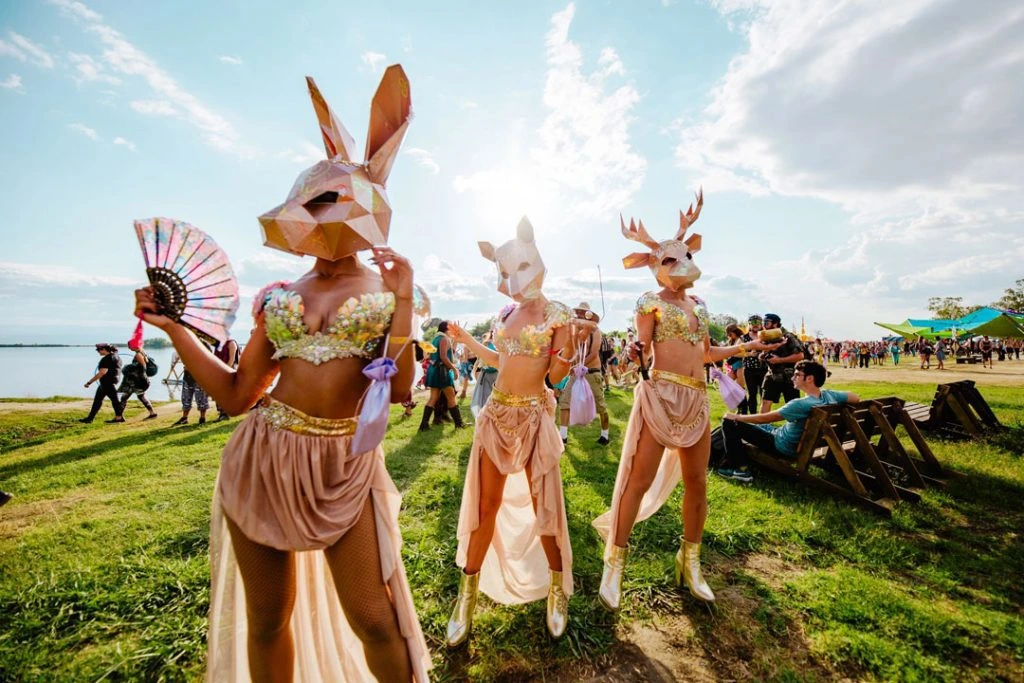New Zealand, with its diverse cultures and stunning landscapes, celebrates a variety of new zealand festivals that bring people together. From lively Christmas gatherings to serene Māori ceremonies, these festivals reflect the nation’s multicultural spirit. They offer a chance for communities to honor their beliefs and share joyous moments. Exploring these vibrant celebrations provides a deeper understanding of New Zealand’s spiritual heritage and its rich cultural tapestry.
Overview of the Major Religious festivals in New Zealand
- Christmas (December 25): As one of the most widely celebrated Christian holidays, Christmas in New Zealand is a family-centered occasion. It typically involves festive meals, gift exchanges, and attending church services. Since New Zealand is in the Southern Hemisphere, Christmas falls during the summer, often marked by barbecues, picnics, and beach gatherings.
- Easter: Celebrated by many New Zealanders, Easter marks the resurrection of Jesus Christ in the Christian tradition. It is a time for reflection, church services, and family gatherings. Good Friday and Easter Monday are public holidays, and Easter egg hunts are popular among children.
- Lent: Lent is a Christian festival observed by many in New Zealand, typically lasting for 40 days (excluding Sundays) leading up to Easter. It is a time of fasting, prayer, and penance, reflecting the 40 days Jesus spent fasting in the desert. While not a public holiday, Lent is marked by spiritual reflection and acts of charity in many Christian communities
- Waitangi Day (February 6): This national holiday commemorates the signing of the Treaty of Waitangi in 1840 between Māori chiefs and the British Crown. It marks the foundation of New Zealand’s partnership between Māori and Pākehā (non-Māori) populations. Celebrations include ceremonies, cultural performances, and community events that reflect Māori traditions.
- Matariki: Matariki is the Māori New Year, celebrated when the Matariki star cluster rises in the winter sky. It symbolizes renewal and remembrance, with families honoring their ancestors and reflecting on the past year. The festival includes feasting, storytelling, traditional Māori performances, and gatherings to celebrate Māori culture and heritage.
- Diwali: Diwali, celebrated by New Zealand’s Indian community, is the Indian cultural festival of lights. It symbolizes the victory of light over darkness and good over evil. People decorate their homes with oil lamps, candles, and fireworks, and enjoy feasts, dances, and cultural festivals. The festival brings together people of various backgrounds to appreciate the cultural richness of New Zealand’s Indian community.
These festivals reflect the multicultural and inclusive nature of New Zealand, blending various religious, cultural, and historical traditions.
Christian Festivals in New Zealand
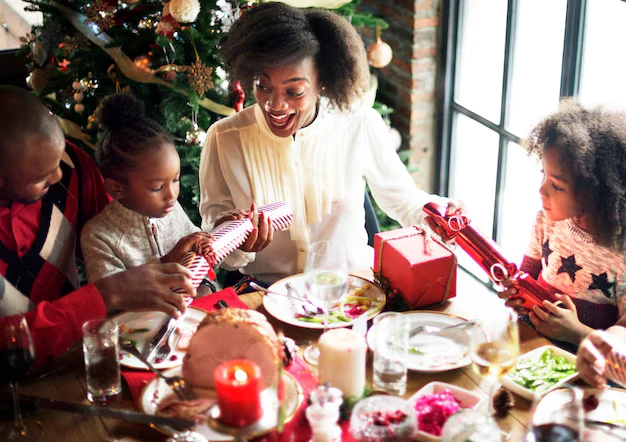
Christianity plays a key role in New Zealand’s culture, with festivals celebrated throughout the year. Christmas is widely cherished, with families gathering for meals, gifts, and festive fun in the summer sun. Easter follows with spiritual services, community events, and playful egg hunts. Lent, though less publicized, is a time for reflection and self-discipline leading to Easter Sunday. These festivals bring communities together, honoring traditions that connect generations.
Christmas
- Summer Celebration: Since Christmas falls during the Southern Hemisphere’s summer, celebrations often take place outdoors, with beach gatherings and barbecues.
- Family Gatherings: Families come together for festive meals, exchanging gifts and enjoying each other’s company in a relaxed, casual atmosphere.
- Christmas Trees and Decorations: Homes are decorated with Christmas trees, lights, and ornaments, often reflecting both traditional and modern styles.
- Caroling: Many communities hold carol services, and groups of people go door-to-door singing Christmas carols.
- Christmas Day Lunch: The traditional Christmas dinner often includes seafood, roast meats, salads, and pavlova for dessert, with a focus on fresh, seasonal ingredients.
- Public Holidays: Christmas Day (December 25) and Boxing Day (December 26) are public holidays, with many shops, businesses, and restaurants closed.
- Presents and Festivities: Gift-giving is a major part of the celebration, with people exchanging presents and enjoying festive games and activities.
- Holiday in Nature: Many Kiwis take advantage of the summer holiday season by enjoying outdoor activities like hiking, camping, or visiting the beach.
Easter
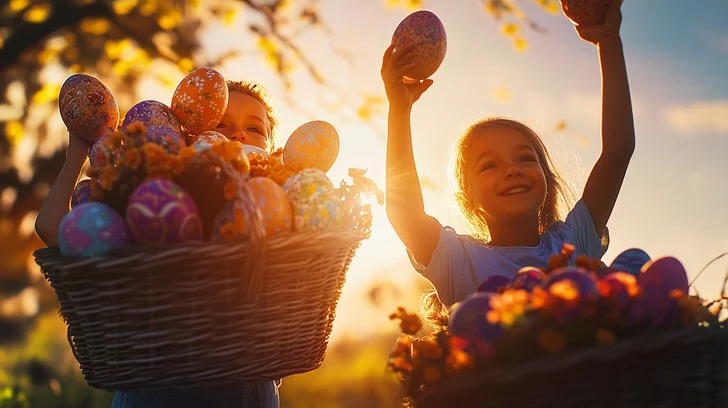
- Church Services: Many New Zealanders attend church services on Good Friday and Easter Sunday, celebrating the spiritual significance of resurrection and renewal.
- Easter Egg Hunts: A popular activity for children, Easter egg hunts are organized in parks and gardens, with New Zealand festival-like community events where families participate together.
- Family Meals: Families gather for festive meals, featuring traditional dishes like lamb, hot cross buns, and pavlova, often enjoying the holiday in the relaxed atmosphere that is typical of a New Zealand festival.
- Community Celebrations: Some towns organize Easter parades or fairs, similar to a New Zealand festival, with floats, live music, and entertainment, bringing together locals in joyful celebrations.
- Charity and Giving: In the spirit of many New Zealand festival traditions, Easter is also a time for charity, with community-driven initiatives to help those in need, reflecting the country’s emphasis on collective well-being.
Lent
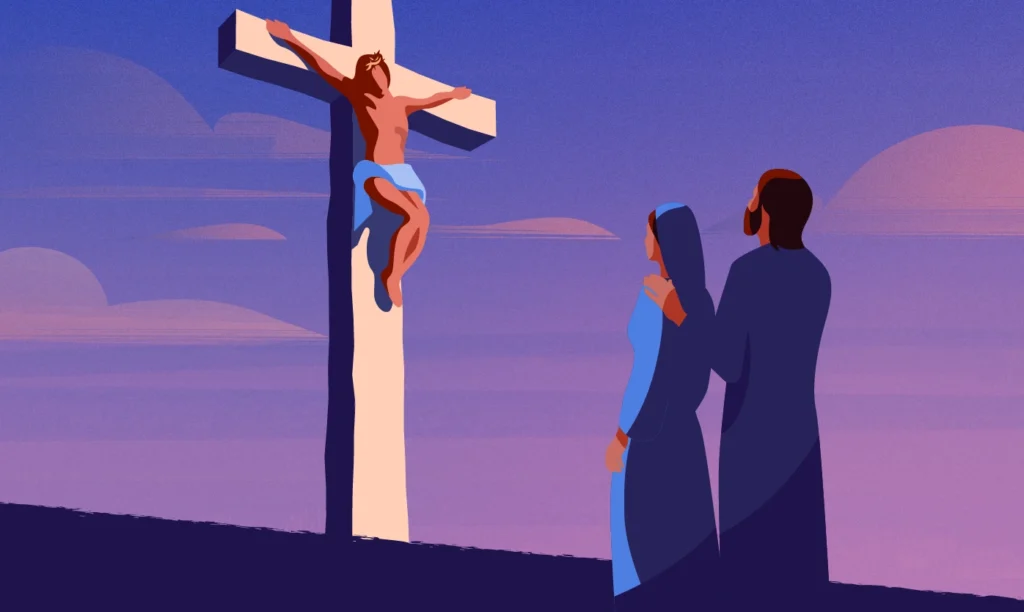
- Spiritual Reflection: Lent is a time of spiritual reflection for many Christians in New Zealand, marked by fasting, prayer, and acts of charity. While it may not be celebrated as a New Zealand festival, it holds deep personal significance for those observing it.
- Community Activities: Although Lent itself isn’t a New Zealand festival, some churches organize events such as prayer groups or charity drives, encouraging the community to come together in the spirit of self-discipline and generosity.
- Sacrifice and Giving: During Lent, many people in New Zealand focus on self-sacrifice, either by giving up certain indulgences or engaging in acts of kindness. These community-driven acts of goodwill are reminiscent of the values seen in a New Zealand festival.
- Easter Connection: Lent leads up to Easter, a New Zealand festival where Christians celebrate the resurrection of Jesus. The observance of Lent makes Easter all the more meaningful, as it serves as a period of preparation and renewal for many.
- Charity and Community Spirit: Like a New Zealand festival, Lent often inspires charitable events and volunteer work. Many organizations use this time to host fundraisers or volunteer opportunities to help those in need, reflecting the sense of unity and compassion found in festivals.
Maori Traditions and Festivals
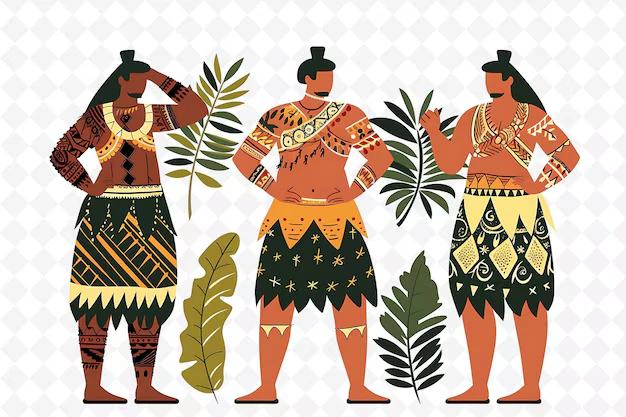
- Matariki – Māori New Year: Matariki, the Māori New Year, is one of the most important New Zealand festivals for Māori communities. It marks the rise of the Matariki star cluster and symbolizes renewal, reflection, and remembrance. Families gather for feasts, performances, and ceremonies that reflect Māori culture and spirituality, making it a vibrant New Zealand festival celebrated throughout the country.
- Cultural Ceremonies: Māori traditions are often expressed through ceremonies such as pōwhiri (welcome ceremonies), kapa haka (traditional Māori performance), and tangihanga (funeral rites). These ceremonies, while not always part of a New Zealand festival, are crucial in maintaining Māori culture and are sometimes incorporated into larger national celebrations.
- Whānau (Family) Celebrations: Whānau plays a central role in Māori life, and many New Zealand festivals are opportunities for Māori families to come together, celebrate their heritage, and share stories passed down through generations. This spirit of togetherness is reflected in both formal and informal gatherings.
- Te Wiki o Te Reo Māori: Māori Language Week is another important New Zealand festival celebrating the Māori language. It is an event aimed at revitalizing and promoting te reo Māori through public events, language classes, and performances, fostering pride in Māori heritage.
- Hangi and Feasts: Māori festivals often include the preparation and sharing of traditional foods, such as the hangi, where food is cooked in an earth oven. This communal meal is a key feature of Māori celebrations and is integral to many New Zealand festivals, bringing people together to share food, culture, and stories.
Hindu Festivals in New Zealand
- Diwali : Diwali is one of the most widely celebrated Hindu festivals in New Zealand. Known as the Festival of Lights, it symbolizes the victory of light over darkness. The celebrations include lighting oil lamps, fireworks, family gatherings, and community events. This joyous occasion is often recognized as a significant New Zealand festival, bringing together people from different backgrounds to celebrate.
- Holi : Holi, the Festival of Colors, is another popular New Zealand festival celebrated by the Hindu community. Participants throw colored powders at each other, celebrating the arrival of spring and the triumph of good over evil. Holi has grown in popularity in New Zealand, with large community events in various cities, marking it as a fun, vibrant New Zealand festival.
- Navaratri : Navaratri is a Hindu festival dedicated to the worship of the goddess Durga. It lasts for nine nights and is celebrated with dances, prayers, and performances. In New Zealand, many temples and community groups host events, making it an important New Zealand festival for Hindus, where they gather to honor their traditions and deities.
- Ganesh Chaturthi: Ganesh Chaturthi celebrates the birth of Lord Ganesha, the elephant-headed god of wisdom and prosperity. In New Zealand, Hindu communities celebrate with processions, prayers, and temple events, making it a significant New Zealand festival for those of Indian descent.
- Janmashtami : Janmashtami marks the birth of Lord Krishna and is celebrated with devotional singing, dancing, and fasting. It is another major Hindu New Zealand festival where temples and community centers host special prayers and cultural activities.
These festivals not only celebrate Hindu traditions but also reflect the multicultural nature of New Zealand, fostering unity and cultural appreciation within the wider community.
Buddhist Festivals in New Zealand
- Vesak – Buddha’s Birthday: Vesak is one of the most important Buddhist festivals, celebrating the birth, enlightenment, and death of Siddhartha Gautama (Buddha). In New Zealand, the occasion is marked by prayers, meditation, offerings, and community gatherings at Buddhist temples. It is a time for reflection on the teachings of the Buddha and the values of peace and compassion.
- Magha Puja: Magha Puja, observed in March, commemorates the Buddha’s teaching to his 1,250 enlightened disciples. It is celebrated with chanting, prayers, and teachings at Buddhist temples across New Zealand. The day serves as an opportunity for Buddhists to reflect on the core values of the religion.
- Lunar New Year: Though primarily a Chinese celebration, Lunar New Year also holds significance for Buddhists in New Zealand, especially among East and Southeast Asian communities. The festival includes prayers, offerings, and cultural events at temples, providing a chance to honor ancestors and seek blessings for the year ahead.
- Dhamma Day: Dhamma Day, typically celebrated in July, marks the Buddha’s first sermon after his enlightenment. It is a time for Buddhists in New Zealand to reflect on the core teachings of the Buddha and engage in meditation and mindfulness practices.
- Kathina Ceremony: The Kathina Ceremony is a significant event in the Theravada Buddhist tradition, held at the end of the Buddhist rainy season retreat. In New Zealand, it involves the offering of robes and other necessities to monks, along with prayers and communal activities. The ceremony is a way of showing gratitude and support for the monastic community.
These festivals are important occasions for Buddhists in New Zealand to come together, reflect on their faith, and deepen their spiritual practices.
Other Religious Festivals Celebrated in New Zealand

New Zealand’s diverse population brings a tapestry of religious festivals beyond the major faiths. Among these, the Jewish community observes important days like Hanukkah and Passover with vibrant gatherings and shared meals.
The Islamic calendar features significant celebrations such as Eid al-Fitr and Eid al-Adha. These festive occasions are marked by communal prayers, feasting, and acts of charity, emphasizing unity within families and communities.
Additionally, Sikh festivals like Vaisakhi attract attention with lively processions featuring music and dance. The celebration honors the harvest season while fostering inclusivity among various cultures.
Other smaller spiritual practices also thrive in New Zealand. Festivals celebrating indigenous beliefs or Earth-based spirituality often include rituals that honor nature’s cycles and promote environmental awareness.
This rich mosaic reflects New Zealand’s commitment to diversity, inviting everyone to join in each unique celebration.
Unique Cultural Blends: How Religious Festivals are Celebrated
New Zealand is a melting pot of diverse cultures, and this is beautifully reflected in its religious festivals. New Zealand festivals bring together a blend of Māori, European, Asian, and Pacific Island traditions, creating a unique cultural tapestry that is celebrated throughout the year.
- Matariki and Christmas: The Māori New Year, Matariki, and Christmas are celebrated together in some communities, blending traditional Māori rituals with Christmas festivities. The vibrant New Zealand festival atmosphere creates a sense of unity, bringing together people from all backgrounds to reflect, celebrate, and connect.
- Diwali and Lantern Festivals: Hindu and Asian communities celebrate Diwali, the Festival of Lights, alongside other significant cultural festivals in New Zealand. The New Zealand festival spirit is evident in the beautiful displays of lights, music, food, and dance, as people from various cultures join in the celebration of good over evil.
- Easter and Pasifika Celebrations: In New Zealand, Easter is observed with Christian ceremonies, but it also coincides with vibrant Pasifika festivals. These celebrations combine religious observances with Pacific Island cultural expressions, making it a New Zealand festival that honors both spiritual beliefs and cultural traditions.
- Chinese New Year and Te Reo Māori Week: Chinese New Year, celebrated with lion dances, food, and festivities, often overlaps with Te Reo Māori Week, which promotes the Māori language and culture. This unique fusion of festivals exemplifies New Zealand’s commitment to cultural inclusivity and celebration, creating a truly distinctive New Zealand festival experience.
These festivals highlight the beauty of New Zealand’s multiculturalism, where different religions and cultures coexist and celebrate together, creating vibrant New Zealand festivals that reflect the nation’s unity in diversity.
Conclusion
Religious festivals in New Zealand showcase the country’s diverse cultures and beliefs, fostering a sense of community and belonging. Christian, Māori, Hindu, and Buddhist celebrations bring people together, each with unique customs that highlight unity within diversity. New Zealand embraces these traditions, blending respect for the past with openness to change, shaping both individual and collective identities.
